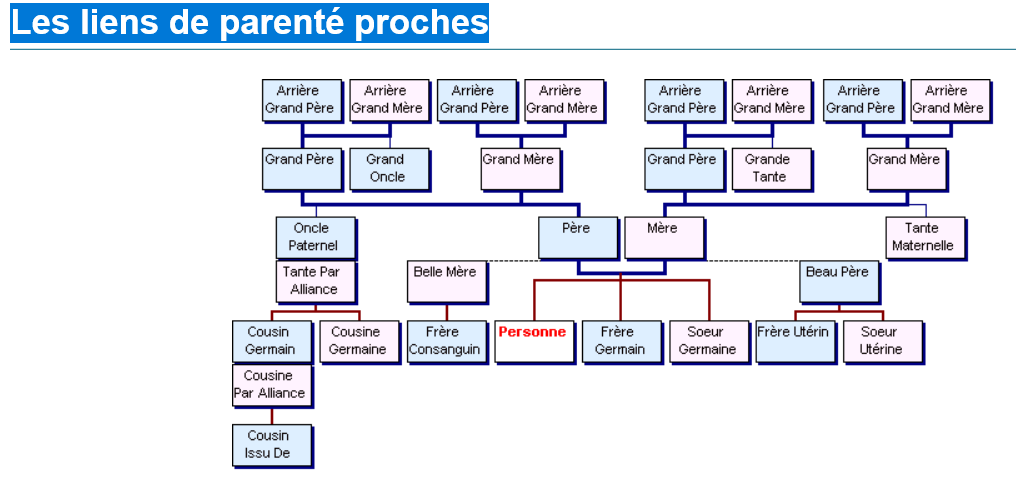Can we use, in colloquial French, les parents when we are talking about family members (i.e. as like the English word relatives)? Should we use les parents proches?
5 Answers
Can we use, in colloquial French, les parents when we are talking about family members (i.e. as like the English word relatives)?
Yes, and not only in colloquial French.
Parents means mother and father when used with a possessive or a definite article (mes parents, tes parents, ses parents, les parents, etc.) but when used with an undefinite (un parent, des parents), parents can also mean relatives.
In colloquial French, you can often hear the expression des parents à moi/lui.
Parents with no article also means relatives in legal documents and obituary notices,e.g.:
Les familles xx, yy, parents et alliés ont la douleur de vous faire part....
Should we use les parents proches?
If you mean close relatives yes, but that would rather be des parents proches.
En complément des précédentes réponses, vous pouvez aussi utiliser « la famille » qui est très courant. Le mot « parentèle » est précis mais un peu désuet. Notez que le mot « proche » est plus étendu que famille car il comprend aussi les amis ou d'autres personnes intimes.
When talking about mother and father you can only use "parent" ; when you want to talk about what is called the relatives in English, that is the parents, grand parents, brothers, sisters, cousins and uncles and aunts you use the word "proche" ; it can be paraphrased by "parents proches", but this is a term that is much less used. You can also use "proches parents" but it's also rarely used.
Here is a family tree in terms of the names of the relationships.
jlliagre draws attention to the following flaws in the above graph:
- erroneous capitalization ("Cousin Germain, Tante Par Alliance", etc. should be "Cousin germain, Tante par alliance", etc.)
- missing hyphens where required (grand-père, belle-mère, arrière-grand-mère)
- missing word in "cousin issu de germain"
- incorrect spelling "grande tante" when it should be "grand-tante"
-
1Beware that the graph has bogus capitalization, is lacking hyphens where required (grand-père, belle-mère, arrière-grand-mère), is missing a word in "cousin issu de germain", and incorrectly use grande tante where grand-tante should be.– jlliagreCommented Dec 23, 2018 at 15:55
Au Québec, de manière usuelle, je parle (ou chante) normalement de (la) parenté (Larousse en ligne, Ac.9, TLFi, qui le dit régional et populaire) : « Il a reçu à dîner toute sa parenté. (En ce sens, on dit aussi [la] Parentèle [voire le parentage] ) » (Ac.9, sauf entre crochets).
The simple "les parents" is the French equivalent "the parents" (i.e. father and mother).
If you want to encompass the relatives (siblings + parents), then you should use "les parents proches" indeed.

